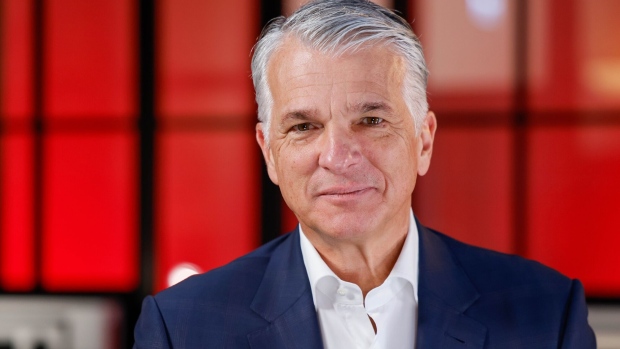May 7, 2024
UBS Is Adding $20 Billion in Capital Even Before Swiss Reforms
, Bloomberg News

(Bloomberg) -- UBS Group AG is already adding almost $20 billion in capital to its regulatory reserves as it integrates Credit Suisse’s business, Chief Executive Officer Sergio Ermotti said, regardless of the Swiss government’s plans to increase requirements from next year.
“Fully aligning the treatment of capital at Credit Suisse to our more rigorous approach” adds about $9 billion to capital needs, Ermotti said on an earnings call on Tuesday. On top of that, “progressive capital add-ons” will raise requirements by about $10 billion, he added.
In coming years though the regulatory environment could tighten further.
Switzerland’s government said last month it wants systemically-important banks to hold significantly more capital against their foreign units, as part of reforms aimed at making the country’s banking stronger after Credit Suisse’s demise last year. The impact for UBS could be some $20 billion of additional required capital, a person familiar with the plans told Bloomberg at the time.
Read More: UBS Is Said to Face $20 Billion Capital Hit Under Swiss Plan
The capital and liquidity requirements in the Swiss revamp are separate from those resulting from the final implementation next year of global rules known as Basel III. Swiss regulation already distinguishes between global and domestically-significant banks, giving officials the ability to put UBS, with a balance sheet twice the size of the local economy, in its own category.
“When applied consistently and coherently, the Basel III rules that UBS and its global peers must follow are robust,” Ermotti said. “They too, are being significantly tightened.”
Ermotti reiterated that it is “premature” to speculate or comment on the potential impact of the Swiss banking reforms. UBS will need to see the full picture to respond, he said, as the bank was not involved in the consultation process leading to the proposals.
Earlier this year, UBS announced that it will resume its share buyback program after completing the legal merger with Credit Suisse at the end of May. The bank said it would buy back up to $2 billion of its shares over the next two years. This plan remains unchanged despite the pending potential changes to its capital requirement.
With around $200 billion in total loss absorbing capacity from shareholders and structurally subordinated bondholders, investors “bear the significant costs and risks to ensure taxpayers would not suffer in the highly unlikely scenario that a major systemic event affects UBS,” Ermotti said.
©2024 Bloomberg L.P.


